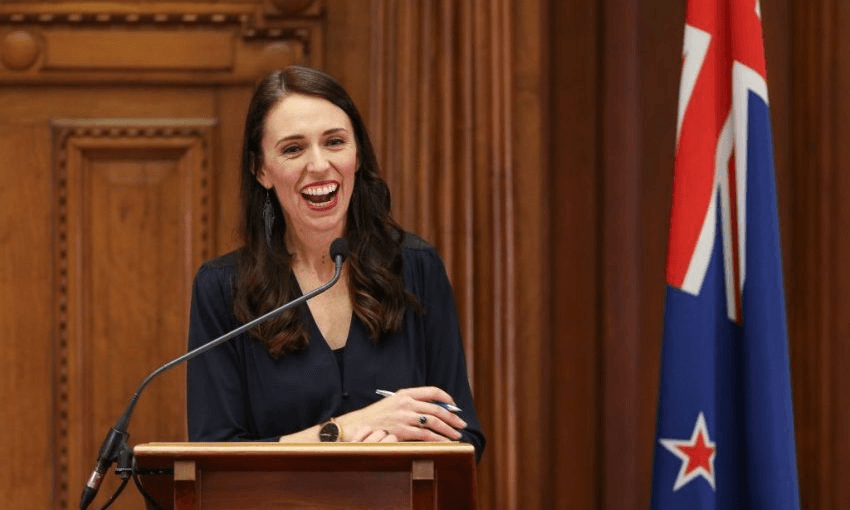Jacinda Ardern is on course to become prime minister again, but what sort of government would she lead into the 53rd New Zealand parliament?
The first thing to say is that it’s not over yet. The parties are still out there campaigning, the undecided voters could all suddenly decide in one direction, the pollsters could be wrong. Judith Collins’ path to power may look about as straightforward as a spring holiday to Disneyland but there is a path.
Assuming the polls are basically reliable, however – as they have proved in previous elections – there are three broad categories of government in the offing.
First, a reminder of the latest numbers, last night’s Colmar Brunton poll for TVNZ.
Labour: 46%
National: 31%
Act: 8%
Greens: 8%
NZ First: 3%
Were those to be the final results – and bear in mind that roughly half of the decided voters polled by Colmar Brunton would have already cast their vote – the parliamentary seats would break down like this: Labour 59, National 40, Greens 11, Act 10.
Assuming the final count is in this sort of territory, there are three government formations that stand head and shoulders above the others as the likeliest. A few seats in either direction, including the impact of specials, could have a major impact on which transpires.
Labour governs alone
Were Labour to secure 61 seats or more – which would probably mean around 48% of the vote or higher – they would have the option of going it alone. No need for any pesky appendages.
Even if they did get a majority in the house, however, they might seek to get the Greens involved in some sort of arrangement, especially if the majority is wafer thin.
Labour-Green coalition
The numbers in last night’s poll would require Labour to get the Greens on board and negotiations would begin pretty swiftly. The parties might negotiate a formal coalition, which would see a handful of Green MPs in cabinet, probably including the deputy PM role. There has been much discussion of the wealth tax in the last week, and despite Jacinda Ardern ruling it out repeatedly, the Greens have said they’d bring it to the negotiation table. As a matter of principle they don’t do “bottom lines”, though, and have a bunch of priorities they’d be pushing for.
Unlike last election, negotiations in this scenario (or the one below) would likely be a lot quicker than last time, when NZ First was negotiating with both Labour and National. That said, depending on how the numbers fall, the Greens may want to wait for special votes to come in. Even one extra seat could make a difference in terms of leverage. The Green members would need to sign off any deal, but it’s unlikely they’d stand in the way.
Labour with Green support
An alternative to a formal coalition is a Labour minority government, made possible via a support agreement from the Greens. Typically called a “confidence and supply” arrangement, it would come with a bunch of concessions and portfolios. This is essentially the Greens’ situation in parliament just completed. While NZ First was in coalition, the Greens had a confidence and supply deal, which included a range of policy agreements – some concrete, some pretty vague – and ministerial roles for a handful of MPs. Those ministers attended cabinet when there was an issue related to the portfolio up for discussion.
There is, of course, the possibility that the Greens decide not to do a deal, should they be, say, unhappy with the concessions on offer from Labour. But it won’t happen. Were we to end up back at the polls, the small party is likely to be punished, especially at a time when the watchword is stability in a crisis-riddled world.
The Māori Party holds out hope of an electorate win, which could put them in a position to join one of the above governing arrangements. And New Zealand First could of course pull a phoenix, in which case all bets are off, and the piece you just read is bunkum.

